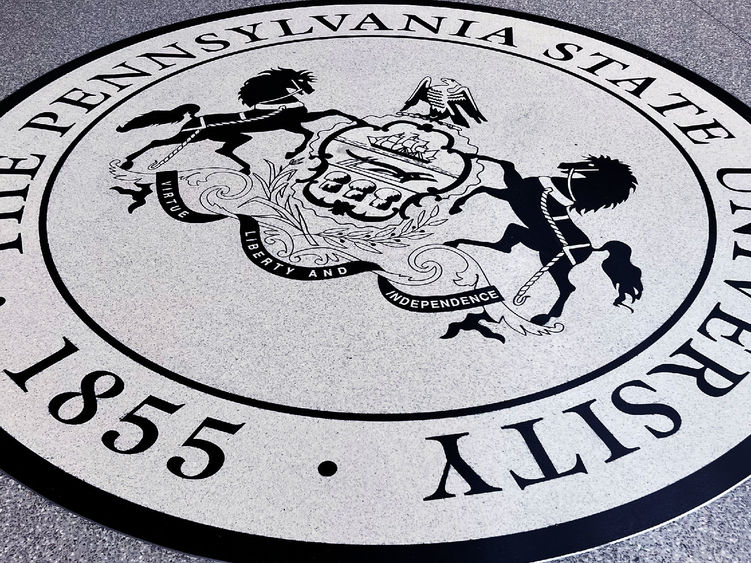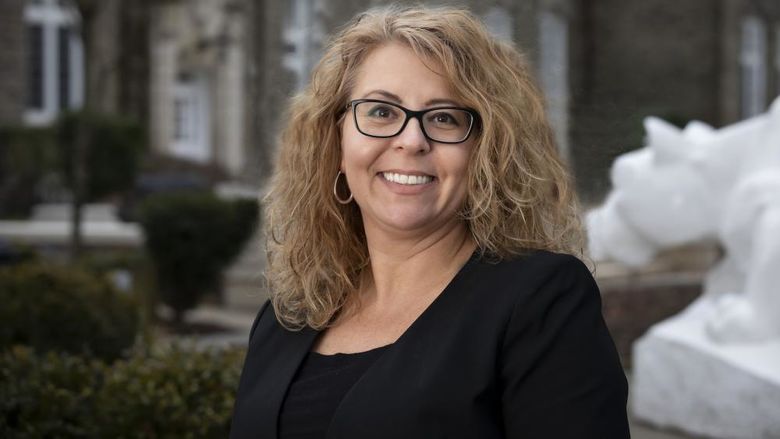
Twelve projects across seven Commonwealth Campuses were named the inaugural Commonwealth Campus Undergraduate Community-Engaged Research Award recipients.
UNIVERSITY PARK, Pa. — Penn State announced today (Aug. 1) the recipients of the inaugural Commonwealth Campus Undergraduate Community-Engaged Research Awards (UCERA), a new program designed for faculty who specifically support undergraduate student participation in research that aims to improve community well-being.
The program, with funding from Penn State President Neeli Bendapudi’s office and the Office of the Senior Vice President for Research, recognizes and supports faculty members across the Commonwealth Campuses who will provide meaningful experiential research opportunities for students. The award provides up to $25,000 for each project.
“A foundational goal of Penn State, as a land-grant university, is to drive impact in the communities where we live and work across the commonwealth. With the UCERA program, we can do that while also pursuing another foundational goal: enhancing student success,” said Margo DelliCarpini, vice president for Commonwealth Campuses and executive chancellor. “The UCERA program funds projects that aim to not only improve local communities, but also to facilitate research experiences for undergraduate students. These students will make an immediate impact on society and perhaps even discover a potential career path with these projects.”
The recipients’ projects will begin this summer or fall, and some will conclude by the end of the calendar year. The rest will continue through the spring semester. Undergraduate students interested in contributing to a project should contact the project’s lead researcher.
The 2024 awardees are:
Penn State Abington:
- Michele Grinar-Boyd, assistant teaching professor of biology, with Theresa Giardino, director of business operations, and Mary Ann Smith, lecturer of biology at Penn State Schuylkill, for a project focused on transforming the campus into a registered neighborhood arboretum.
- Yvonne Love, associate professor of art, with Chris Bonner, associate teaching professor of art, for an expansion of a successful collaboration with TileWorks focused on making bricks and research and constructing a brick bottle kiln. More information is available here.
- Roxanna Senyshyn, associate professor of applied linguistics and communication arts and sciences, for a project titled, “Advancing heritage language education: Addressing challenges and developing solutions with/in our communities.”
Penn State Beaver:
- Autumn Sabo, assistant professor of biology, with numerous community members for a project titled, “Reforest our future with community patches.” The work will focus on creating native reforestation patches in lieu of traditional lawns.
Penn State Berks:
- Andrew Friesen, associate professor of kinesiology, with Allison Altman Singles, associate professor of kinesiology and of mechanical engineering; Michael Briggs, assistant teaching professor of kinesiology; Colleen English, associate professor and program chair of kinesiology; Ben Infantolino, associate professor of kinesiology; and Praveen Verabhadrappa, associate professor of kinesiology, to establish a campus sports institute, where local community members from club teams, high school teams, etcetera, can obtain performance-based metrics.
- Marietta Scanlon, associate teaching professor of engineering, with the Reading School District for a project titled, “A FiERCE journey: Empowering tomorrow’s STEM leaders through role-models and mentoring.”
Penn State Brandywine:
- Daniela Martin, associate professor of psychology, with Andrea Randolph-Krisova, assistant teaching professor of kinesiology, for a collaboration between the campus and Higher Ground Yoga to provide trauma-sensitive recovery yoga individuals and communities impacted by trauma and/or substance use disorder.
Penn State Harrisburg:
- Eileen Ahlin, associate professor of criminal justice, with Indrit Hoxha, professor of economics, for a project titled, “Transitional housing in Harrisburg: An interdisciplinary assessment.” The project is focused on providing pilot data for Thrive Housing Service, a local business owned by a woman.
- Nik Tsotakos, assistant professor of biology, with two undergraduate students, for a project that aims to unravel the complex interplay of genetic factors, gene expression patterns and environmental influences underpinning varying prevalence of chronic kidney disease in different ethnic groups.
Penn State Hazleton:
- Bhanu Babaiahgari, assistant professor of engineering, with Md Habib Ullah, assistant professor of electrical engineering at Penn State Harrisburg, for a project titled, “Improving underserved community households’ access to energy,” focused on implementing energy transformation infrastructure that enables more access to electricity in communities where it is often limited.
Penn State Schuylkill
- Sarah Princiotta, assistant professor of biology, with Beth Norman, director of science and research for Lacawac Sanctuary Biological Field Station, to pilot a water monitoring routine on two lakes located within the service area of the campus.
- Joseph Squillace, assistant teaching professor of cybersecurity, with Salih Hakan Can, professor of criminal justice, for a project titled, “Improving cybersecurity education and enhancing student success through collaborative community engagement.”





